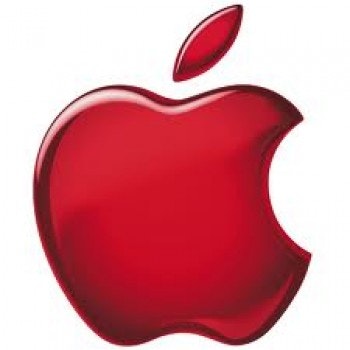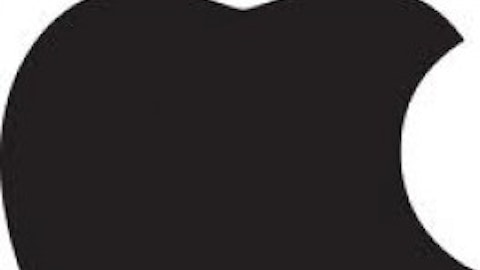
As originally reported by Fortune, White had this to say about Apple Inc. (NASDAQ:AAPL):
Apple is now trading at just 7.6x (ex-cash) or a straight P/E of 9.8x our CY13 EPS projection and below the S&P 500 Index at 12.5x. Apple’s discount to the S&P 500 becomes even more of a “head scratcher” when you compare growth rates. For example, between CY03 through CY11, Apple has grown EPS by 92% per year versus just 7% growth for the S&P 500 Index. […] While we don’t expect Apple to grow EPS by 92% per annum over the next five years, we believe 20-30% growth is reasonable based on the Company’s low market share in mobile phones and PCs, combined with growth opportunities in tablets and new potential areas such as Apple TV.
Now, this bullish sentiment can obviously be expected of someone who holds a $1,111 price target on the stock, but it’s our opinion that Apple Inc (NASDAQ:AAPL)’s true potential lies in its talks with Chinese telecom China Mobile Ltd. (NYSE:CHL), which has close to 700 million subscribers, or 70% of China’s total phone-equipped population. Up until this point, the iPhone has only been available to subscribers at China Unicom Limited (NYSE:CHU) and China Telecom Corporation Limited (NYSE:CHA), which do not use the SCDMA network format that China Mobile employs.
Apple has historically tailored its smartphones to WCDMA networks, and it remains to be seen exactly which side will break first. As we originally reported a couple of months ago, “a deal with China Mobile [is] ripe for the picking. One potential hiccup over such an agreement, however, is the carrier’s refusal to play by the so-called Steve Jobs Rules,” which essentially maintain that partners have historically not received a cut of Apple Inc. (NASDAQ:AAPL)’s sales. Rumors have been flying that China Mobile wants a piece of the iTunes action, which may be the main negotiating point between both sides.
Obviously, Apple is undervalued, but it seems clear that the stock is in dire need of a bullish catalyst, and there wouldn’t be a better candidate than a China Mobile deal. Apple Inc (NASDAQ:AAPL) releases iTunes 11 with improved Facebook functionality later this month, though it remains to be seen exactly how the newest iteration of the software will affect the company’s bottom line.
Sell-side analysts still expect Apple to grow its earnings by an average of 20.9% a year over the next half-decade, which is above both Google Inc. (NASDAQ:GOOG) (15.7%) and Microsoft Corporation (NASDAQ:MSFT) (9.6%) quite handily. Even more attractive is Apple’s earnings growth valuation, which, at a PEG of 0.57, indicates that a massive revaluation is in store over the long haul. Shares of the company currently trade at a 59% discount in relation to Google and Microsoft when using this metric, and sport a much more attractive trailing P/E (11.9X) than both Google (20.3X) and Microsoft (14.3X).
If Apple Inc (NASDAQ:AAPL) cannot work out a deal with China Mobile in the intermediate term, another event that can boost shares higher is the company’s next quarterly financials. Historically speaking, the first quarter has always been Apple’s best, and with its recent streak of two straight negative surprises, Wall Street isn’t expecting an otherworldly total in Q1 of 2013. On average, EPS estimates sit at $13.54, a 2.4% decline from the same quarter a year earlier.
It’s worth noting that when Apple beat the Street’s last Q1 estimates with earnings of $13.87 a share, consensus was only $10.04. If Apple is able to notch an EPS in the, let’s say $14 range, it would represent the YOY growth and beat that investors would need to push shares higher. It’s worth mentioning that Apple’s latest EPS guidance is $11.75 a share, but we haven’t seen the full effects that new devices like the Fusion Drive, iPad Mini, and iPhone 5 will have in a holiday season just yet, and these estimates can be revised.
To recap: it seems clear that Apple Inc. (NASDAQ:AAPL) is on the cheap, but it needs a bit of a push. When looking at its two biggest competitors, Google and Microsoft, Apple is trading at an unfair discount. A case can be made that investors should stop comparing the company to itself, and instead, look to competitors’ valuations instead. With expected EPS growth that trumps the competition, Apple remains a better place for investors to store capital than any other mega-cap in the tech sector today.





